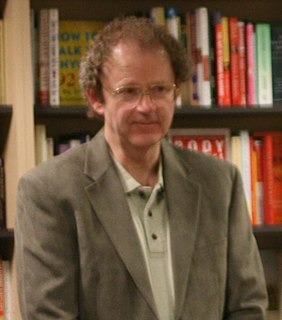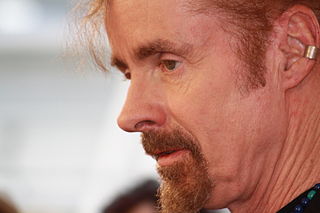A Quote by Steven Levitt
When people don’t pay the true cost of something, they tend to consume it inefficiently.
Related Quotes
The cost of research, development and testing of a new drug is vastly greater than the cost of each dose produced. How should we pay for new medicines? Innovators should be rewarded according to the impact of their medicine, and people should contribute to these rewards according to their ability to pay.
I understand shipping - you have to expect to pay for the stamps or for the freight company - but what's this handling they always have? How much does handling cost, anyway? I don't want a lot of people handling something I'm going to buy before I get it. How much would it cost if you didn't handle it before you sent it to me?
Go to the farmers market and buy food there. You'll get something that's delicious. It's discouraging that this seems like such an elitist thing. It's not. It's just that we have to pay the real cost of food. People have to understand that cheap food has been subsidized. We have to realize that it's important to pay farmers up front, because they are taking care of the land.
It started with Ronald Reagan, when he took away the financing to the California universities. It used to be cheap to send your kids to the UCs. They'd call it an investment, because the more you educate people, the more they'll pay in taxes, because they'll get better jobs. But Reagan said, "No, it's a cost, so you're going to have to pay the cost." So now people can't afford to get an education. Anyway, I don't want to get too political, but yeah, I think the spirit of this country is finally coming back, and hopefully it will triumph.
We're going to build a wall and Mexico is going to pay. And the reason they're going to pay and the way they're going to pay, Bob, is this. We have a trade deficit now with Mexico of $58 billion a year. The wall is going to cost $10 billion a year. That's what it's going to cost. It's going to be a powerful wall. It's going to cost $10 billion.
The richer people, when they get another $100,000, or another million, or 10 million, don't tend to spend it as much as the poorer people would if they got another $100 or $1,000 or $5,000. All the empirical evidence suggests that the rich tend to consume a lower proportion of income than middle and lower-income people.
The U.S. has a system that does have a poor cost-benefit ratio. I mean, 40 million people lack insurance; another 30 million or so are underinsured. The people who are insured do have to worry whether they are able to pay the bills. People become bankrupt because they cannot pay the medical bills, and there are vast differences in the quality of care depending on how much you are prepared and able to pay. I think the system is not working well.





































